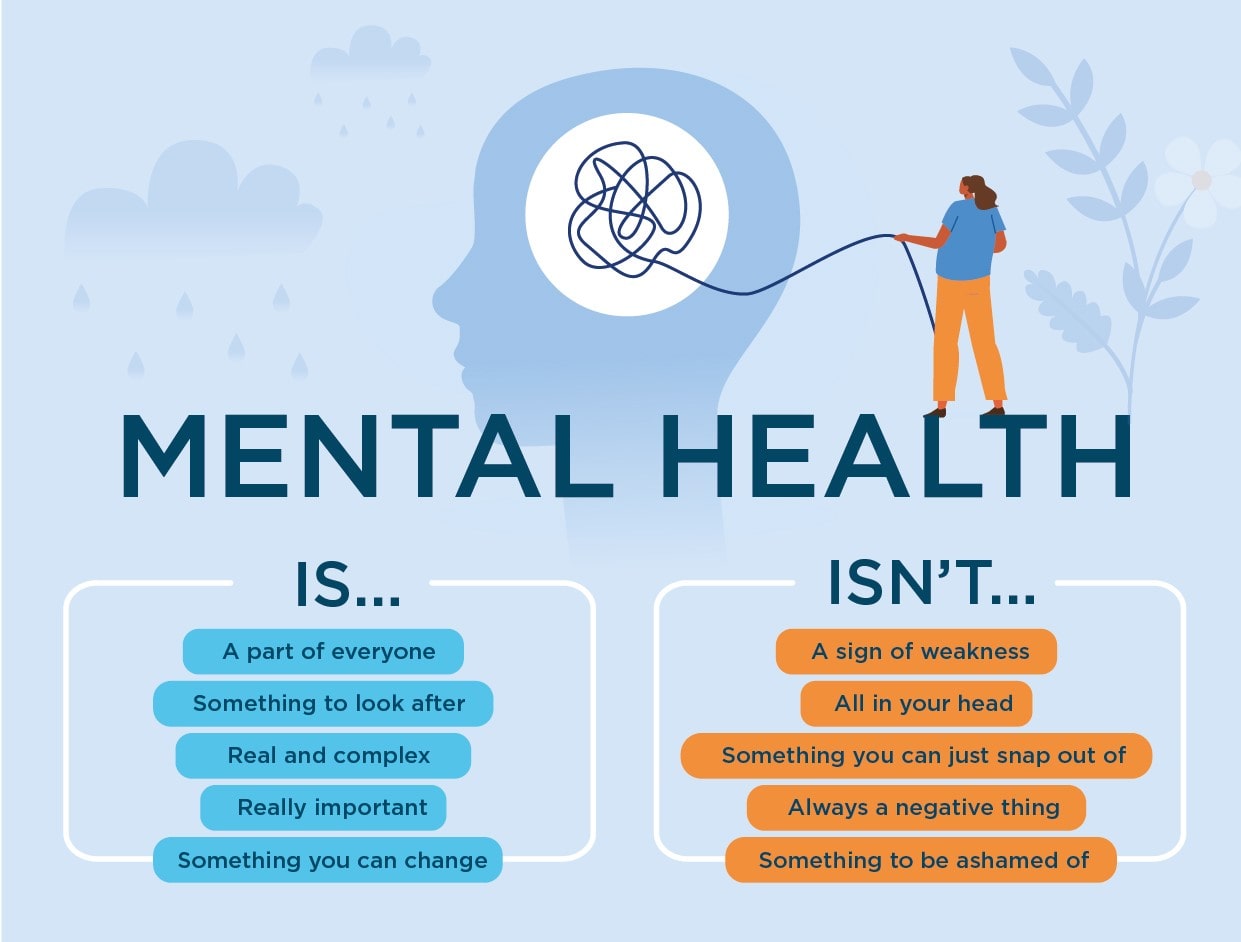Mental health includes our emotional, psychological, and social well-being. It affects how we think, feel, and act. It also helps determine how we handle stress, relate to others, and make healthy choices. Mental health is important at every stage of life, from childhood and adolescence through adulthood.
The term ‘mental health’ also refers to your state of mind. Positive mental health is about feeling a general sense of wellbeing, confidence and self-esteem.
Having good mental health is not just so you can get through the day, but so you can form healthy relationships with others, enjoy and create the life you want.
Your mental health deserves to be taken seriously. If you feel like you’re not coping, the best thing you can do is ask for help.
But while we all have our ups and downs, ongoing mental health issues can be a sign of a mental illness. Mental illnesses, such as depression and anxiety disorders, have a bigger impact on thoughts, feelings and behaviour than mental issues, and can feel overwhelming.
Fortunately, mental illnesses can usually be effectively treated or managed.
Some of the most common mental illnesses are:
· anxiety
If you believe you have a mental health issue:
Get professional help – Call, message or see a doctor, counsellor or psychologist.
Learn – Find out as much as possible about your condition, what can trigger symptoms, the best treatments, and how to help yourself.
Get support – Make an effort to talk to family and friends, even if you don’t feel like it sometimes. It is important to connect with those who care.
Community help – Everyone is unique and it’s important to find the kind of support that helps you best at any time.
Access Online help - There are a number if reputable apps and websites that can assist you. Some of which are :
- MoodKit.
- Talkspace.
- Headspace.
- iBreathe.
- MindShift CBT.
- Quit That!
- Happify
